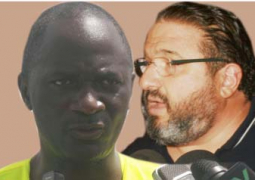The World Bank Group's New Deal on Global Food Policy has been endorsed by 150 countries. The New Deal embraces short, medium and long-term responses: including safety nets such as school feeding, food for work, and conditional cash transfers; increased agricultural production; a better understanding of the impact of biofuels; and action on the trade front to reduce distorting subsidies and trade barriers. The Bank is taking action by:
* Creating a $1.2 billion rapid financing facility to speed assistance to the neediest countries.
* Boosting overall agricultural lending to $6 billion over the next year.
* Launching risk management tools and crop insurance to protect poor countries and small-holders.
* Nearly doubling agricultural lending to
* Supporting over $1billion in new projects in agriculture and rural development in
* Doubling lending for social protection, nutrition and food security, and social risk mitigation to $800 million over the next year.
* Providing $200 million to
* Providing $100 million to hard-hit
*Providing grants to
*Providing grants to
* Working on irrigation and water management in
* Preparing a food crisis related emergency operation to help
* Providing financial assistance to Kyrgyz and
* Conducting rapid needs assessments for countries impacted by the crisis, including
* Urging major grain-producing countries to lift or refrain from bans on food exports.
*Working with other donors and agencies on the African Union's New Partnership for
Read Other Articles In Article (Archive)
The Gambia Martial arts launches new initiative
Jan 5, 2010, 2:25 PM


